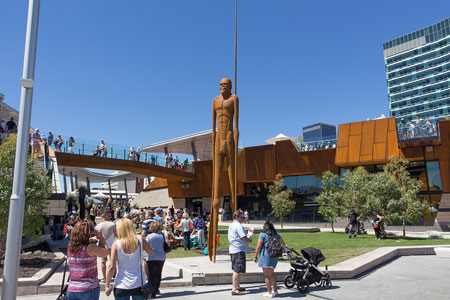City of Gosnells Croatian Translation Services
Perth Translation Services » Perth » City of Gosnells Translation Services » City of Gosnells Croatian Translation Service
City of Gosnells Croatian Translation Services
Get fast and professional translation services in City of Gosnells. Our Croatian translators provide translation of all types of documents. These include confidential legal, financial and migration document translations.
Upload Document For Translation

City of Gosnells
The City of Gosnells is a local government area in the southeastern suburbs of the Western Australian capital city of Perth, located northwest of Armadale and about 20 kilometres (12 mi) southeast of Perth's central business district. The City covers an area of 128 square kilometres (49.42 sq mi), much of which is state forest rising into the Darling Scarp to the east, and had a population of approximately 118,000 at the 2016 Census.
City of Gosnells History
The name Gosnells dates back to 1862 when Charles Gosnell who was the owner of London cosmetic company John Gosnell & Co., bought Canning location 16 from the Davis family who were the original grantees in 1829. While the purchase of the land was a personal investment by Charles Gosnell, when the land was sold to developers in 1903 the developers used the association to the well known cosmetic company, claiming it had bought the land because of its fertile soil to grow flowers for the manufacture of its perfume range. The abundance of the Arum Lily (Zantedeschia aethiopica) in the area and the marketing by the developers contributed to the myth about the Gosnell company, being so successful that the Gosnells railway station was constructed on the Armadale line in 1903.
Gosnells Road District was created out of the abolished Canning Road District on 1 July 1907. Industry in the form of brickworks were introduced to Beckenham in the early 1990s. Between 1912 and 1915 fruit fly wiped out nearly all of the stone fruit crops in the region and many farmers turned to dairying and market gardening. Irrigation was vital due to sandy, infertile soils of Canning Vale. In 1923, the City received land from Jandakot Road District when that entity was abolished. Significant development did not occur until the post-war years. The population grew from 7,400 in 1954 to about 11,000 in 1966, and then to 21,000 in 1970. On 1 July 1961, Gosnells Road District became a Shire following enactment of the Local Government Act 1960. On 1 July 1973 it became a Town and exactly four years later it attained City status.
City of Gosnells Suburbs
Beckenham, Canning Vale, Gosnells, Huntingdale, Kenwick, Langford, Maddington, Martin, Orange Grove, Southern River, ThornlieAbout the Croatian Language
Croatian is the standardized variety of the Serbo-Croatian language used by Croats, principally in Croatia, Bosnia and Herzegovina, the Serbian province of Vojvodina and other neighboring countries. Croatian is one of the official languages of the European Union, Bosnia and Herzegovina.
Standard Croatian is based on the most widespread dialect of Serbo-Croatian, Shtokavian, more specifically on Eastern Herzegovinian, which is also the basis of Standard Serbian, Bosnian, and Montenegrin.
Croatian, although technically a form of Serbo-Croatian, is sometimes considered a distinct language by itself. Purely linguistic considerations of languages based on mutual intelligibility (abstand languages) are frequently incompatible with political conceptions of language so that varieties that are mutually intelligible can not be considered separate languages. Differences between various standard forms of Serbo-Croatian are often exaggerated for political reasons. Most Croatian linguists regard Croatian as a separate language that is considered key to national identity. The issue is sensitive in Croatia as the notion of a separate language being the most important characteristic of a nation is widely accepted, stemming from the 19th-century history of Europe. The 1967 Declaration on the Status and Name of the Croatian Literary Language, in which a group of Croatian authors and linguists demanded greater autonomy for the Croatian language, is viewed in Croatia as a linguistic policy milestone that was also a general milestone in national politics. At the 50th anniversary of the Declaration, at the beginning of 2017, a two-day meeting of experts from Croatia, Bosnia-Herzegovina, Serbia and Montenegro was organized in Zagreb, at which the text of the Declaration on the Common Language of Croats, Bosniaks, Serbs and Montenegrins was drafted. The new Declaration has received more than ten thousand signatures. It states that in Croatia, Serbia, Bosnia-Herzegovina and Montenegro a common polycentric standard language is used, consisting of several standard varieties, such as German, English or Spanish. The aim of the new Declaration is to stimulate discussion on language without the nationalistic baggage and to counter nationalistic divisions.
The terms "Serbo-Croatian" or "Serbo-Croat" are still used as a cover term for all these forms by foreign scholars, even though the speakers themselves largely do not use it. Within ex-Yugoslavia, the term has largely been replaced by the ethnic terms Serbian, Croatian, and Bosnian.
City of Gosnells Croatian Translator Services
Croatian translator for certified translation services:
- Croatian driving license translation
- Croatian financial translation and bank statement translations
- Croatian birth certificate translation
- Croatian marriage certificate translation
- Croatian name-change certificate translation
- Croatian degree translation
- Croatian diploma translation
- Croatian school transcript translation
- Croatian passport translation
- Croatian police report translation
- Croatian police check translation
- Croatian personal letters and cards
- Croatian utility bill translations
- Croatian death certificate translation
Perth Translation provides fast and affordable Croatian translation services in the City of Gosnells for all types of personal documents by NAATI translators.
Languages Translated
- Arabic translation service
- Czech translation service
- Chinese translation service
- Croatian translation service
- Danish translation service
- Dutch translation service
- French translation service
- Finnish translation service
- Greek translation service

